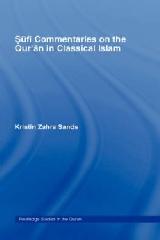The Classical period of Islam, from the tenth to the fifteenth centuries, was a period in which the most influential commentaries on the Qur'an were written. Sufi Commentaries on the Qur'an in Classical Islam looks at the unique contributions of Sufis to this genre and how these contributions fit into the theological and exegetical discussions of the time.
This study begins with an examination of several key hermeneutical assumptions of Sufis, including their understanding of the ambiguous and multivalent nature of the Qur'anic text, the role that both the intellect and spiritual disciplines play in acquiring knowledge of its meanings, and the ever-changing nature of self which seeks this kind of knowledge. The second half of the study is an analysis and comparison of the themes and styles of several different commentaries on:
The Qur'anic story of Musa (Moses) and al-Khadir
The figure of Maryam (The Virgin Mary)
The Light Verse
It demonstrates that, while Sufi interpretation has often been characterized as allegorical, these writings are more notable for their variety of philosophical, visionary, literary and homiletic styles.
"Sufi Commentaries on the Qur'an in Classical Islam" is the first comprehensive study of the contributions for Sufis to the genre of commentaries on the Qur'an and is essential reading for those with research interests in Sufism, Qur'anic exegesis and Islam.

(0 Comentarios)